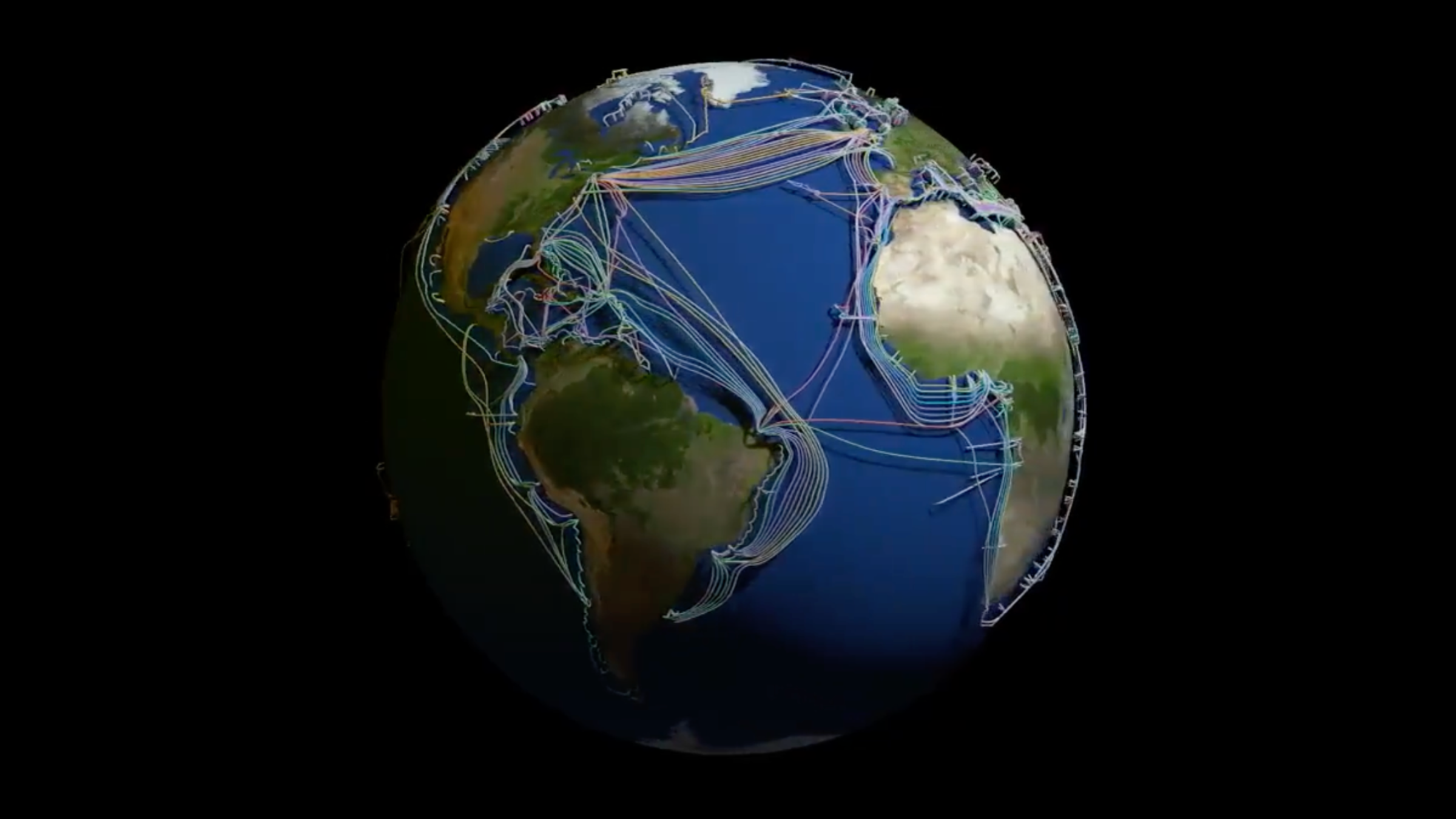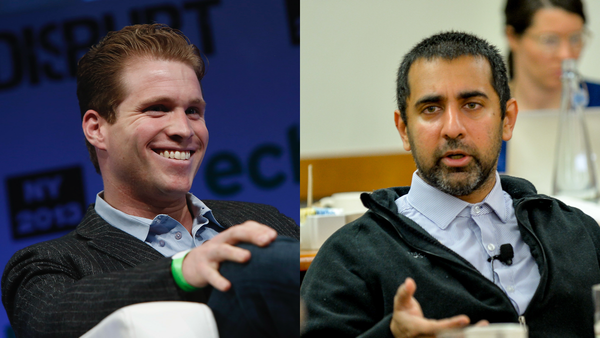Donald Trump has declared economic war on the United States’ neighbors and some of its closest allies. Canada and Mexico now face 25% tariffs on most of their exports to the United States, while Europe has been told tariffs are coming for its goods soon too. The second coming of Donald Trump is leading to a brazen championing of the narrow interests of the United States above all else, and particularly those of some of the richest and most powerful people in the world: the tech billionaires of Silicon Valley.
For several years, the tech oligarchy has been working to reframe the industry through the lens of geopolitics and cozy up to the extreme right. That was designed not just to rid the industry of attempts at accountability, but also to make itself central to any attempt to defend American power in an increasingly multipolar world. Now, those billionaires are in prime position to use the Trump administration not just to remake the US government as they see fit, but also to try to defend the tech industry’s global power against Chinese competition and threats of regulation in other Western countries.
The stance of the Trump administration only exacerbates the growing recognition that allowing US companies to dominate the internet economy across much of the world was a terrible mistake. The harms that have come of that model — for workers, users, and the wider society — have already shone a spotlight on the problems of importing poorly regulated internet platforms based on American norms and practices. But now more than ever it’s clear that cannot continue, and traditional allies of the United States need to come together not just to take on its tech industry, but to protect themselves from a declining superpower that’s decided it can do whatever it wants — even to those it recently called friends.
It’s always been America First
The United States has long used its power to promote the interests of Silicon Valley. Bill Clinton privatized the internet and facilitated the early financialized growth of the industry. Barack Obama’s administration closely aligned with tech and used its diplomatic power to expand the markets for those companies. Donald Trump continued the policy of inserting pro-Silicon Valley clauses in trade agreements, while Joe Biden used the authority of the United States to stifle efforts to regulate and tax US tech companies around the world — even as tech billionaires whined about his attempts to hold them accountable for some of their rule breaking.

Even during the periods where Silicon Valley wanted people to believe it had a fraught relationship with government, that support was always there. Now that relationship — and the industry’s conservatism — is coming back to the fore as tech billionaires see an opportunity to seize the levers of state power for their own ends. Elon Musk and his servants have already begun that process, not just by spending hundreds of millions of dollars to buy a close relationship with the president, but by taking over key government agencies to reshape the bureaucracy and the functions of the state.
I don’t want to diminish the consequences this will have within the United States. The expansion of the power of fascist tech billionaires, paired with the rapid and aggressive attack on the rights of countless minority groups, including trans people and migrants, is already proving to be devastating. Those consequences will only grow. But my focus in this piece is on those outside of the United States — particularly the countries that until recently considered it a key ally.
The United States built the network of international institutions we know today not out of altruism, but to defend and expand its own power. It forced countries around the world to take down tariffs and trade barriers so Western companies could enter and dominate local industries, taking the profits back home. That’s what US tech companies have done around the world, even to fellow Western allies: taken over a key industry and funneled the earnings back to the United States, making it difficult for local firms to effectively compete.
Up until Biden’s presidency, the United States was largely committed to that global order because it recognized the costs of maintaining such an architecture were small in comparison to the benefits the country received from it. But that’s no longer the case under Trump. The current administration has a much more narrow view of that international dynamic. The United States is still an incredibly powerful force in the world, but it’s not reacting well to its relative decline as China rises and other countries carve out greater regional influence.

Now, the United States is planning to much more aggressively push its own interests, regardless of the backlash and reputational costs. Along with the tariffs on Canada and Mexico, there’s a 10% tariff on Chinese goods and the threat the same is coming for Europe. Trump has European leaders scrambling over his determination to seize Greenland, and is surely doing the same in Panama as he seeks to take over the Panama Canal.
In his inauguration speech, Trump declared that Manifest Destiny was back and the United States would be expanding its territory once again. That imperial impulse must be challenged, just as it is when Russia or Israel seek to seize territory, but so must American economic imperialism — particularly as it currently works with digital technology and the companies that power it.
The internet expanded US power
When Mark Zuckerberg rolled back fact checking on Meta platforms, he wasn’t just seeking Trump’s favor as part of the tech oilgarchy’s plan to roll back tech regulation and antitrust investigations in the United States. He was very clear it was also about what was happening internationally, namely stopping the European Union and other governments from placing their own regulations on American tech companies. Apple’s Tim Cook, along with Elon Musk and many others, have said much the same.
The global spread of the internet has long been framed as a move to expand connection, freedom of expression, and other rights, but that was in part a cover for its other quality — the one that mattered most to the US government: that it was a form of economic imperialism. As the internet spread, it took US tech companies that had an early-mover advantage and easier access to capital and allowed them to expand globally, paired with a narrative that the internet should be left to the private sector and not overly regulated. That meant those US companies were free to act as they pleased as the American economic framing that supported them was strengthened.

In 1989, then Senator Al Gore explained as much in the legislative body. “The nation which most completely assimilates high-performance computing into its economy,” he said, “will very likely emerge as the dominant intellectual, economic, and technological force in the next century.” The US government always saw its technological dominance as a means of enhancing its global power. As American companies grew, it became more difficult for local startups in other countries to challenge them — all while US ideas about the internet and issues like freedom of speech were deployed to constrain governments’ ability to act in their own citizens’ interests. They didn’t want to be slandered as anti-innovation, restricting rights, or constraining growth.
But in recent years the harms of that trade off have become increasingly difficult to ignore. It’s not just the conspiracy theories and right-wing misinformation spreading on social media, or the attack on labor rights these American tech companies helped accelerate. But also the economic consequences of allowing the United States to control the companies that have come to define so much of the economy and have become highly valued — if not overly valued — as a result.
The only country to effectively challenge that dominance is China, in large part because it rejected US assertions about the internet. The Great Firewall, often solely pegged as an act of censorship, was an important economic policy to protect local competitors until they could reach the scale and develop the technical foundations to properly compete with their American peers. In other industries, it’s long been recognized that trade barriers were an important tool — such that a declining United States is now bringing in its own with the view they’re essential to projects its tech companies and other industries.
US bullying must be reined in
As the United States declares war on the economies and people that were once its closest friends, it’s time for its global power and influence to be reined in once and for all. Instead of allowing the US government to continue to bully and threaten countries around the world, its Western allies must team up with friends in the Global South not just to force the United States into line, but to tackle the power of its out-of-control tech industry once and for all.
The United States needs to know that it cannot dominate the tech economy all on its own, and that the people of the world will no longer accept being subject to the whims of its dominant internet and tech companies. Carving out space for digital sovereignty will not be easy. It will require a combination of strict regulations (if not outright bans) on certain American tech products, public investment to build an alternative that doesn’t simply replicate the extractive model of Silicon Valley, and international cooperation to ensure the benefits of such an initiative are shared widely, not hoarded for economic gain as the United States — and to a lesser degree China — have done.

The tech oligarchy has made it clear they will use their leverage with the American government to ensure the United States goes after any country trying to constrain Silicon Valley, but given the Trump administration is already attacking friends and allies, that shouldn’t be a reason not to charge forward. The era of American dominance is waning, but it’s not going to accept its relative decline without trying to bring others down with it. That doesn’t mean other countries should stand by and simply accept its belligerence — nor that of its richest people.
As the United States lashes out, its tech billionaires are not just challenging policies around the world, but explicitly trying to intervene in the domestic politics of other countries to challenge governments they don’t like and try to elevate far-right political parties they feel will serve their interests. That foreign interference cannot stand, and is yet another reason to build an alliance against the US government and its tech industry. Trump has four years to wreak havoc on the world — and the best way to stop him is by showing the international order will not stand for it. The time is now.














Member discussion